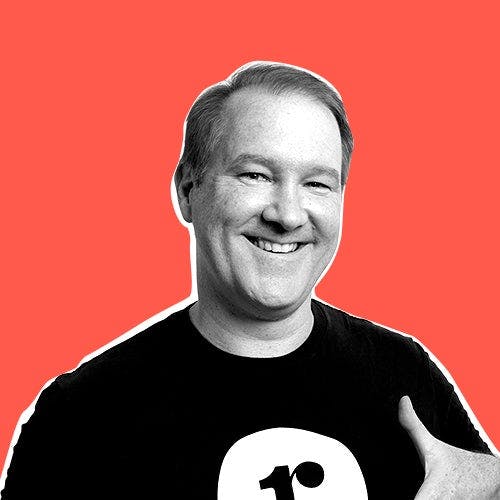For the Better Podcast: Enhancing Communication and Community Through Podcasting
Summary: Realizing that traditional channels of communication weren’t reaching her audience, Rachel Baker of Stanford Surgery launched Scrubcast, designed to fit the preferences of busy Bay Area professionals. It turned out to be the perfect medium for the message.
For busy healthcare professionals, absorbing up-to-date trends via email or other text-based media doesn't cut it. Podcasts are emerging as a dynamic force in healthcare communication, offering a convenient and engaging way for professionals and patients alike to access valuable medical information.
Why it matters
Traditional media designed to deliver specialized healthcare content to physicians and practitioners isn't effective because they lack the time to read it
However, they still need up-to-date information on trends and new techniques in order to stay at the top of their fields
Patients also need information about procedures, and the conversational delivery of a podcast helps reduce anxiety
What's happening
Podcasts offer the flexibility of being able to keep up-to-date on trends and techniques while on-the-go or between tasks.
Because podcasts can be highly targeted, they can be more successful at reaching an engaged audience seeking specific content
Scrubcast, Stanford Surgery's podcast, is able to deliver niche content on specialized topics like
parathyroidism treatment
Podcasting also offers patients an opportunity to form a human connection with their doctors
The results
Podcasting fosters a win-win situation for all parties involved. It empowers patients with knowledge, keeps healthcare professionals up-to-date, and allows institutions like Stanford Surgery to connect with a wider audience and establish themselves as thought leaders in the medical field.
The expert insight
Rachel, a trained journalist offers a few tips for aspiring podcasters.
Create a welcoming environment that makes your guests feel at ease when talking; they'll open up more.
Be sure to ask open-ended questions, especially at the end. Questions such as, "Is there anything else you'd like to tell me?" or "What haven't we covered yet?" can yield great insights that might otherwise have been missed.
Listen to the podcast and learn more
To hear more from Rachel, and hear the story of how she launched Scrubcast, listen to the podcast on your favorite streaming service.
Listen to the episode: Enhancing communication and community through podcasting.
